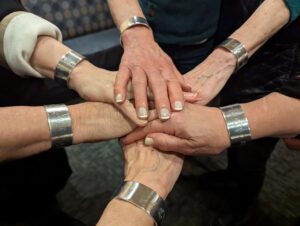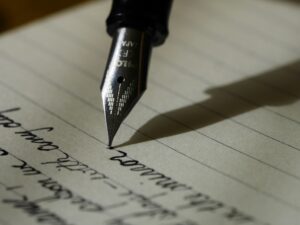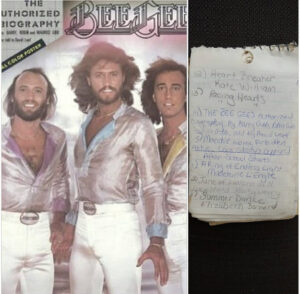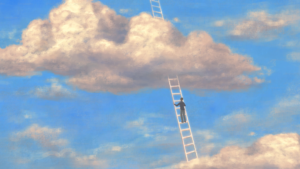Field Notes

Field Notes,
Left Unsaid: Musings from a Writing Group
These tales of family, grief and loss, life and love are the stories of the now. Interwoven with our words of the past they have created a tapestry of our six members, our stories forever intertwined.

Field Notes,
To My Not-So-Secret Admirer
That’s the beauty of fiction! A writer can take every crazy idea that flits through her brain and mash it, smash it, filter it, funnel it, bury it, burn it, or type it fast in all caps. The intent is there but not there. A moment of insight, a stab at the truth, a flash that fades as fast as a closed screen.

Field Notes,
How Deep Is Your Love? – On Writing, Fangirling, and the Best of the Bee Gees
In time, I’d recognize that pull as a desire to write myself. Not songs, but stories, which feels fitting because, though the harmonies are lovely on that album, it was really the storytelling above all else that moved me. The brevity, the oddness, the glimpses of worlds existing beyond three-minute tracks.

Field Notes,
Dream-Compelled Narration
It was not that long ago that communities supported the idea of the prophet within all, hidden under the blanket of sleep. Similar realms include that of daydreaming and meditation. When we listen to our intuition, heed our dreams, and allow our senses to roam outside of the tangible world, that is when we can access our full creativity.

Field Notes,
Your Draft Needs More Country Music
In the intervening years, I have come back again and again to those old radio country songs because they capture that same fresh liberation they did when I first heard them over a gas station milkshake on a dusty 110-degree day. They express what I never could.

Field Notes,
The Chase
The instructor asked if we chose the stories we wrote, or if the stories chose us.

Field Notes,
Porter House Reads: Literature in Translation
The editors of Porter House Review recommend some of their favorite books in translation.

Field Notes,
Adoption vs. Appropriation: Writing as an Asian Adoptee
This brought me back to the question of ownership, and whether I have any right to claim these stories as my own. Yes, I was born in China, but I’m in my mid-twenties, only just now seeking these stories that supposedly were part of my heritage. Why had I refused to seek out these stories before?
